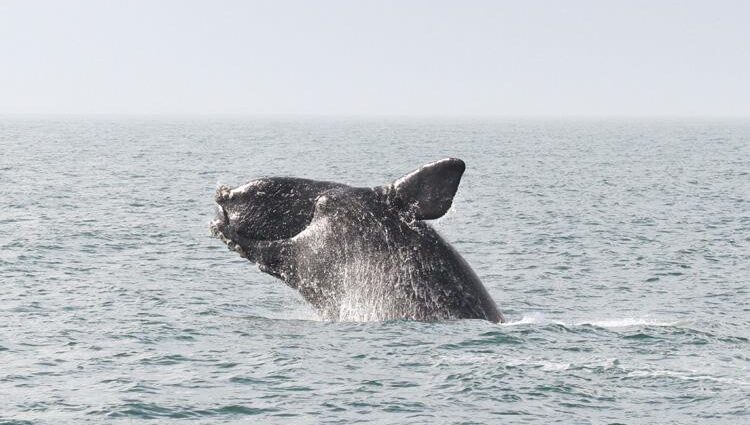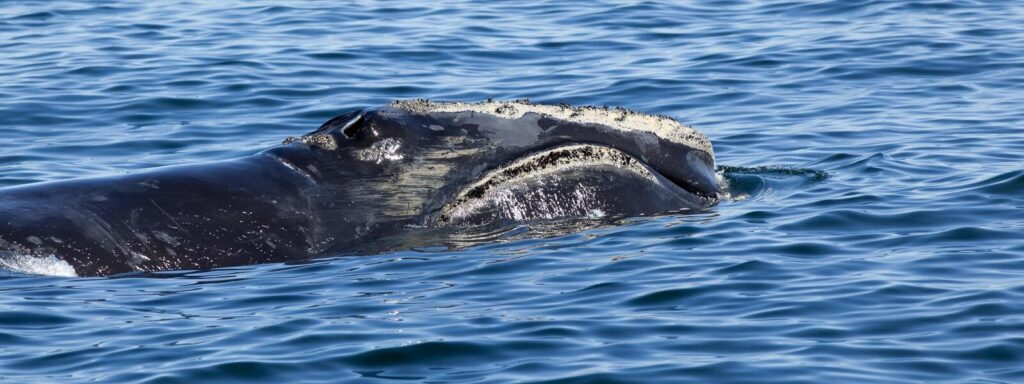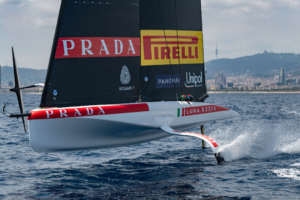US Congress introduces new bill to block boat speed rule proposal
 A right whale breaches. Credit NOAA Fisheries
A right whale breaches. Credit NOAA Fisheries
A bipartisan bill has been introduced in the US House of Representatives and US Senate to delay funding for the National Oceanic and Atmospheric Administration’s (NOAA) proposed speed restrictions for boats measuring 35-65 feet.
The bill argues that funding should be withheld until the Department of Commerce fully implements new monitoring systems for North Atlantic right whales.
The bill introduction follows the introduction of a similar bill by two senators in June.
NOAA Fisheries is proposing changes to the North Atlantic right whale (Eubalaena glacialis) vessel speed regulations to further reduce the likelihood of mortalities and serious injuries to right whales from vessel collisions.
Industry stakeholders argue NOAA’s proposed changes would impact more than 63,000 registered boats, causing considerable economic harm to coastal economies and the boating and fishing industries.
The new bill, introduced by representatives Mary Peltola and Buddy Carter, would prohibit NOAA from issuing a rule that modifies or replaces the current North Atlantic right whale vessel strike reduction rule until technological solutions recently authorised by Congress can help better track whales and avoid strikes.
Under the proposed expansion, all boats 35ft and greater cannot travel faster than 10 knots (11 mph) within a vast area extending from Massachusetts to central Florida, for up to seven months of the year and, in some places, up to 90 miles offshore.
“We all want to protect the right whale from extinction, but this is the wrong way to do it,” says Carter, a Republican from the state of Georgia. “Before implementing a sweeping rule that will kneecap small businesses up and down the east coast, including 27,000 in Georgia alone, we must use all of the technological advancements at our disposal so that right whales and business owners can thrive together.”
Representative Peltola, a Democrat from the state of Alaska, adds: “Like most of my colleagues, I am concerned about the long-term health of our marine mammal populations, including the North Atlantic Right Whale. This rule, however, has too many potential unintended consequences for small boat operators who need the flexibility to maintain their safety at sea. Alaskans know that the ocean is unpredictable; limiting a vessel’s speed can have catastrophic consequences for human life and new regulations should not create additional hazards for our nation’s mariners.”
The proposed speed zones would be in effect from November through to April or May annually.

“We applaud representatives Carter and Peltola for championing this bipartisan legislation and look forward to working with both chambers of Congress to advance this bill to protect the North Atlantic right whale, American jobs, small businesses, and coastal economies,” said Frank Hugelmeyer, president of the National Marine Manufacturers Association. “Boaters and anglers, our nation’s original conservationists, deeply respect marine ecosystems and know through innovation and technology we can coexist with the North Atlantic right whale in our nation’s waters.”
Jane Davenport, senior attorney with Defenders of Wildlife, argues the slowdowns will protect whales. “We need seasonal slowdowns to protect right whales in danger zones, just like we have lower speed limits to protect children near schools. Slowing down is the best way to reduce accidental collisions and protect both whales and human safety. NOAA Fisheries’ science-based rule is vital to the survival and recovery of this iconic species.”










